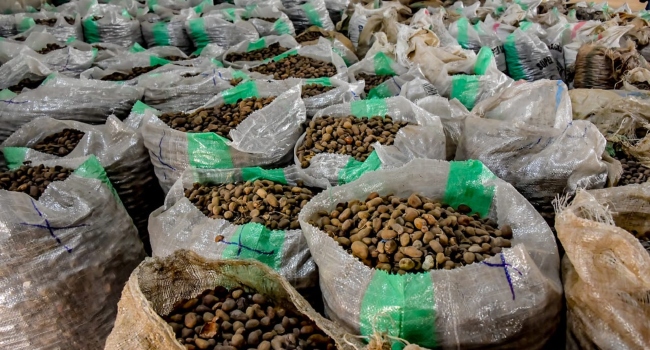President Bola Tinubu has imposed a six-month ban on the export of raw shea nuts to strengthen local processing, safeguard Nigeria’s shea industry, and boost national revenue. The ban takes effect immediately and will be reviewed after expiry.
Vice-President Kashim Shettima announced the directive during a multi-stakeholder meeting at the Presidential Villa on Tuesday. He instructed the Ministry of Finance and other relevant agencies to fast-track enforcement.
Shettima explained that the measure is a “pro-value addition policy” designed to supply raw materials to domestic factories, create jobs, and increase rural incomes. He stressed that Nigeria, despite producing nearly 40% of the world’s shea, controls only 1% of the $6.5bn global market.
He projected that Nigeria could earn $300m annually in the short term, with a ten-fold rise by 2027. “We are transforming from a raw nut exporter into a global supplier of refined shea products,” he said.
The Vice-President highlighted women’s role in the trade, noting that 90% of pickers and processors are women. “By protecting the shea industry, we protect livelihoods, dignity and opportunity for millions of women,” he added.
Agriculture Minister Abubakar Kyari said Nigeria produces 350,000 metric tonnes of shea annually but captures less than one percent of the global market. He warned that informal cross-border trade drains over 90,000 tonnes yearly while local processors operate at just 35–50% capacity.
Kyari stressed that neighbouring countries have already restricted raw exports to protect their industries. He argued that the directive will secure domestic supply, enable factories to run at full capacity, and position Nigeria to claim a significant share of the projected $9bn global market by 2030.



